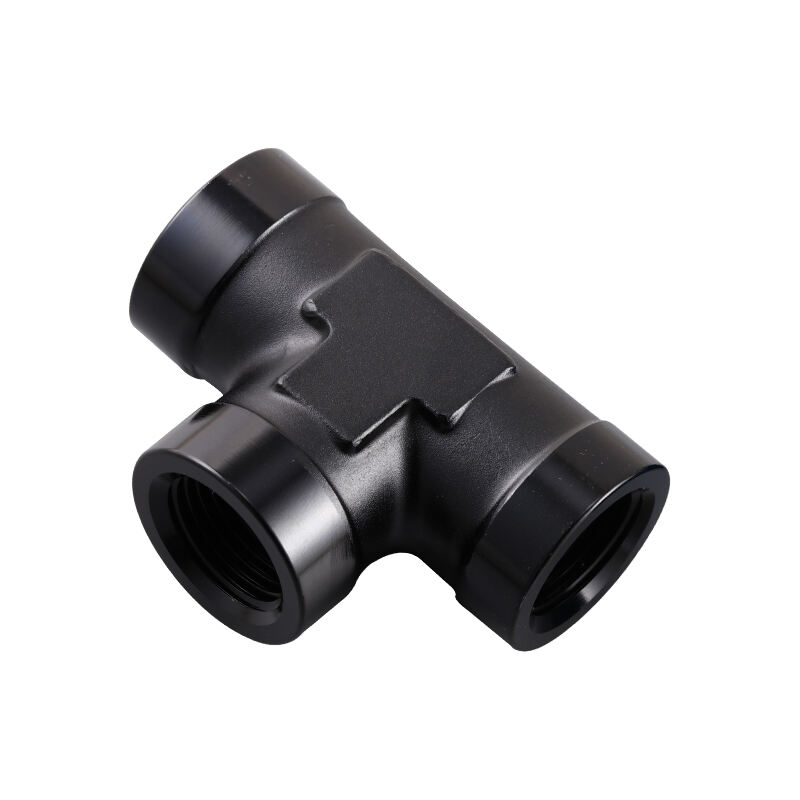Meistens schmiedearmaturen die Kommission hat die Kommission aufgefordert, die in den letzten Jahren durchgeführten Untersuchungen zu überprüfen. Diese hochfesten Schmiede-Stahlverbindungen sind von entscheidender Bedeutung für die Verbindung von Rohren, die Teil von Systemen sind, die sicher verbunden werden müssen. Hier werden wir erörtern, was geschmiedete Armaturen sind, welche Vorteile sie bieten und für welche Anwendungen sie wichtig sind.
Was sind geschmiedete Armaturen?
Schmiedearmaturen sind Rohrarmaturen, die dem Schmiedeverfahren unterzogen werden, bei dem ein Metallstück erhitzt und gedrückt wird, um es zu formen. Der Heizparameter stärkt und erhöht die Zähigkeit des Materials und macht geschmiedete Armaturen somit auch in Hochdrucksituationen anwendbar. Die Anschlüsse können eine Ellbogen-, T- oder Koppelform haben und dienen dazu, die Rohre nahtlos zu verbinden oder zu entfernen.
Schmiedearmaturen, die im Gegensatz zu gegossenen Armaturen, die in eine gegossene Form geformt werden, ihre Form durch Maschineneinführung erhalten. Es gibt somit eine feinere Körnungsstruktur und eine Erhöhung der Festigkeit und Zähigkeit, die für hohe Belastungsbedingungen ideal ist.
Vorteile von geschmiedeten Armaturen
Der größte Nachteil von geschmiedeten Armaturen ist ihre physikalische Eigenschaft. Aufgrund der Schmiedeverfahren sind diese Armaturen sehr robust, tragen und reißen und können extremen Temperaturen und Druck standhalten. Daher eignet es sich ideal für Anwendungen, bei denen ein Ausfall schädlich wäre, wie z. B. in einem Rohrleitungssystem, das gefährliche Stoffe transportiert, und auch bei höheren Temperaturen.
Auch geschmiedete Armaturen sind weniger korrosionsanfällig als gegossen. Dies liegt daran, daß die Materialzusammensetzung durch das Schmieden gleichmäßiger wird und die Wahrscheinlichkeit von Defekten oder Schwachstellen gering ist.
Verwendung von geschmiedeten Fittings
Schmiedearmaturen können in Industriezweigen wie
1. Die Öl und Gas - Schmiedearmaturen in der Öl- und Gasindustrie helfen, sichere und zuverlässige Verbindungen in hochdrucksicherten Rohrleitungen in korrosiven Umgebungen zu schaffen. Sie sind für Bohrwerke oder andere Hochrisikoplätze von entscheidender Bedeutung.
2. Die Chemische Verarbeitung - In der chemischen Industrie werden hoch aggressive Chemikalien und Hochtemperatur-Fitings benötigt. Diese Bedingungen werden durch geschmiedete Armaturen gut erfüllt, die dazu beitragen, in Systemen mit unsicheren Chemikalien undichte und langlebige Verbindungen zu schaffen.
3. Die Stromerzeugung In Kraftwerken werden geschmiedete Armaturen in Dampf-, Wasser- und Gasleitungen eingebaut. Ihre Fähigkeit, sehr hohem Druck und hohen Temperaturen standzuhalten, macht sie für diese Art von Umgebung geeignet.
4. Konstruktion – Geschmiedete Fittings werden auch umfangreich im Bauwesen eingesetzt, wobei Tubage verwendet wird, um Rohre in Wasser-, Heizungs- und Klimaanlagen zu verbinden.
Schmiedearmaturen sind entscheidende Bestandteile, die die Sicherheit und Integrität von Rohrsystemen unter unterschiedlichen Bedingungen hohen Drucks und Spannungen gewährleisten. Ihre Festigkeit, Haltbarkeit und Beständigkeit gegenüber den meisten extremen Bedingungen ermöglichen es ihnen, in Öl und Gas, chemischer Verarbeitung, Stromerzeugung und im Bauwesen weit verbreitet zu sein. Unternehmen und Ingenieure können die Vorteile und den Einsatz von geschmiedeten Bauteilen erkennen und auf der Grundlage des Verständnisses der geschmiedeten Bauteile fundierte Entscheidungen über die für den sicheren und effizientesten Betrieb ihrer Anwendungen am besten geeigneten Materialien treffen.

 Aktuelle Nachrichten
Aktuelle Nachrichten2025-06-11
2025-06-12
2025-06-13